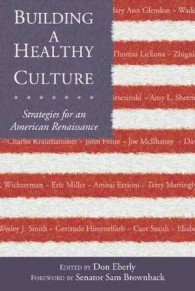Nonjudgmentalism—a morality without legs…

The primary spiritual illness afflicting the culture is the loss of an active belief in absolute truth that transcends the immanent realm or present temporal world. Transcendence, as it will be used here, refers to belief in absolute truth grounded in a reality larger than the collection of temporal events and experiences forming everyday life. C. S. Lewis refers to belief in transcendence or ‘the Tao’ as ‘the doctrine of objective value, the belief that certain attitudes are really true, and others really false, to the kind of thing the universe is and the kind of things we are.’ This is not to say that cultures rooted in transcendent truth are immune to social decay. Indeed, the content of this belief in transcendent truth is very important. Nonetheless, it is the eroding of belief in transcendence and the rise of subjectivism that is at the core of the American culture’s declining health.
At first glance, the rejection of transcendence by Americans is not readily apparent from the evidence. … [A]significant percentage of Americans have inherited a theistic world from previous generations but they have ‘syncretized’ it with the cultural elite’s relativism, holding fundamentally incompatible ideas and affirming both simultaneously. The so-called moral majority is at best a schizophrenic majority, both embracing a transcendent God of the universe and rejecting the very basis of that belief.
James Davison Hunter’s portrait of America as a deeply divided people, locked in a culture war with one another, does not seem to comport with the operational subjectivism of most Americans. Closer to the mark may be Alan Wolfe’s One Nation, After All. Wolfe argues that there is no culture war because the middle class does not believe in most things strongly enough to want to impose them on others. While he agrees that America’s elites are engaged in cultural conflict, he finds that America’s middle class has found a common creed in a nonjudgmentalism that trumps morality. Thus, when the Supreme Court hands down decisions overturning state restrictions on abortion and Internet obscenity, bans student-led prayer in official school functions, and mandates legal authority to enact special rights for homosexuals as a protected class, Americans register their disapproval in opinion polls, but not at the polling booth. Where the Court’s decisions should provoke legislative and electoral resistance, the public shrugs. For many supposedly theistic Americans, their morality has no legs. …
This excerpt is from “The Culture: ‘Upstream’ from Politics,” by William B. Wichterman, one of the essays collected in Building a Healthy Culture: Strategies for an American Renaissance, edited by Don Eberly (Eerdmans, 2001).


 October 12, 2012
October 12, 2012 







Comments are closed.